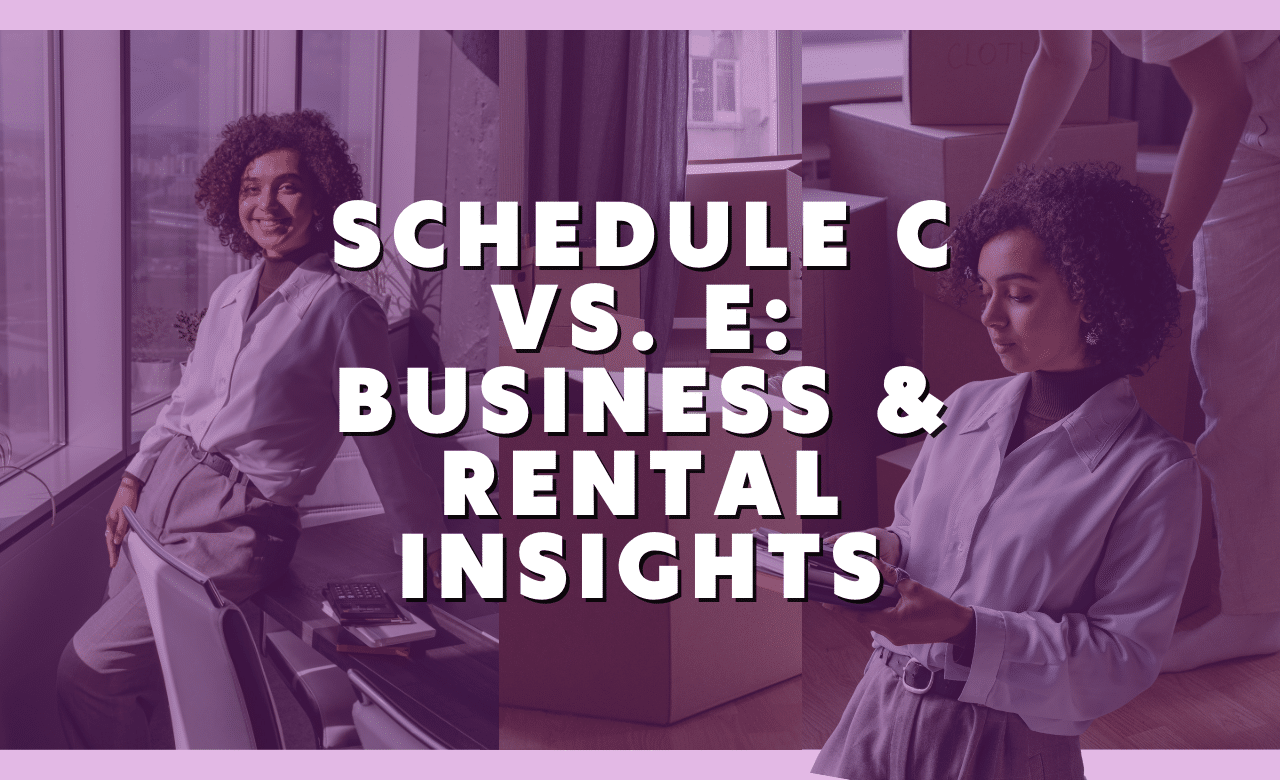Hi, I’m Bette Hochberger, CPA, CGMA. In this blog, I am going to discuss Schedule C and E essentials for sole proprietors and rental activity.
For the committed sole proprietor or the brilliant property owner, understanding the complexities of the Schedule C and E can be the difference between a smooth tax season and a hectic one. We’ve already looked into the basic responsibilities and crucial points for both. Let’s dive deeper into what each of these schedules entails and some best practices to adopt.
Further Insights into Schedule C – Sole Proprietorships
Deductions
As a sole proprietor, there are various business expenses you can deduct. Common deductions include home office expenses, vehicle usage for business, advertising costs, and certain travel and meal expenses. Ensure you maintain detailed records and receipts.
Home Office Deduction
If you use a part of your home exclusively and regularly for your business, you might be eligible for a home office deduction. This can be calculated either using the standard method or the simplified option. However, make sure the space is genuinely dedicated to business operations.
Net Profit and Loss
If your expenses exceed your income, you might have a net loss. This can typically be deducted from your gross income, subject to certain limitations. Always consult with a tax expert if you’re uncertain about reporting a loss.
Digging Deeper into Schedule E – Rental Activity and Royalties
Rental Expenses
Beyond the standard expenses like mortgage interest and property taxes, remember to consider other deductible costs such as repairs, maintenance, property management fees, and even certain travel expenses related to property maintenance or acquisition.
Vacation Rentals
If you rent out your property for short periods, different rules might apply. Rental income might not be reportable if the property is also used as a personal residence and is rented out fewer than 15 days during the year.
Royalty Income
Royalties from copyrights, patents, and oil, gas, and mineral properties are reportable in Schedule E. Understand the distinction between gross royalties (before any deductions) and net royalties (after deductions).
Real Estate Professionals
If you’re a real estate professional, the rules around passive activity losses don’t necessarily apply in the same manner. You might be able to deduct more than the typical passive loss limits.
Both Schedule C and Schedule E come with their own set of nuances and considerations. Sole proprietors and those with rental activity should approach their tax obligations meticulously, keeping abreast of changing tax laws and ensuring accurate reporting.
Always consider seeking the advice of a tax professional (like myself!), especially when navigating complex scenarios or substantial amounts of money. Your proactive approach today can save you from potential tax headaches tomorrow!










